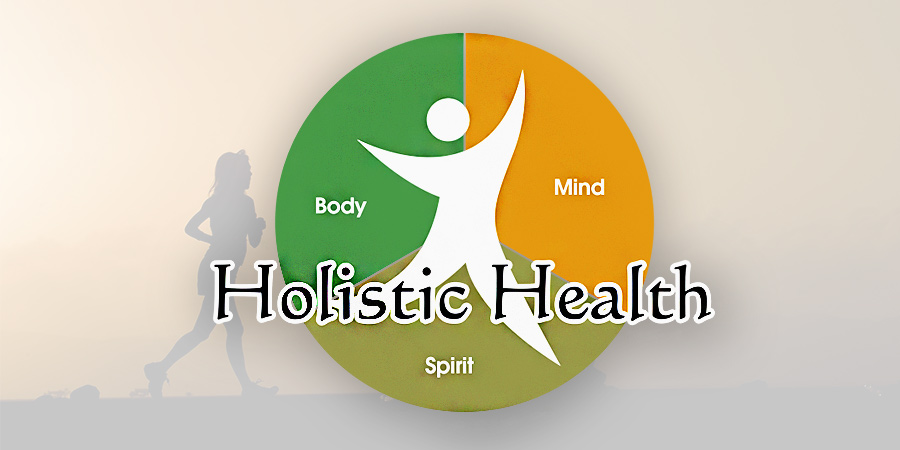Holistic Health: A Guide to Living a Balanced Life
Have you ever asked yourself what it really means to live a balanced life? In this age of speed, harmonizing mind, body, and spirit may appear too challenging. However, holistic health provides an all-inclusive approach towards attaining this equilibrium. By looking at how different aspects of life are interrelated, it ensures general well-being and satisfaction in life. This guide will walk you through the basics of holistic health and show ways to apply them in your day-to-day activities for increased balance and fulfillment. What is Holistic Health? Holistic health is a wellness model that takes into account the entire person including physical, mental, emotional, and spiritual elements. Unlike conventional medicine which treats diseases as isolated incidents; holistic healthcare looks at maintaining internal equilibrium or homeostasis within the body. This philosophy accepts that everything about one’s being is linked together hence true healing can only be achieved by dealing with root causes rather than mere symptoms. Main Aspects of Holistic Health Physical Well-being: Physical health serves as the base for overall wellness according to holism. It encompasses keeping fit through good eating habits, regular exercises, enough rest/sleeping hours plus proper medical checkups among others such as: Balanced Diet: Eating different types of foods rich in nutrients necessary for various bodily functions. Regular Workouts: Taking part in activities aimed at improving stamina levels like running or swimming. Adequate Sleep: Allowing adequate time for body cells’ repair and rejuvenation. Routine Medical Check-ups: Frequent visits to doctors/nurses for screenings against common diseases e.g., Cancer. Mental Health: Mental health is a key part of overall health because it affects the way we think, feel, and act. There are many things that can be done to maintain mental well-being such as stress management, mindfulness, and emotional support. Some strategies for good mental health include: Managing Stress: This can be achieved by implementing techniques like deep breathing, meditation, or time management. Practicing Mindfulness: You can engage in activities that promote presence and awareness such as yoga or meditation. Seeking Emotional Support: A strong support network should be built with family members friends and even therapists. Emotional Health: Emotional health is all about understanding your emotions so you can manage them properly which in turn helps you have positive relationships with others around you while still having a healthy self-esteem. Other parts of emotional wellness include being able to recognize & express feelings appropriately; showing empathy towards other people’s needs and views and being resilient when faced with challenges throughout life among others. Here are some tips for maintaining emotional balance: Recognizing emotions: One must first know what they are feeling before anything else happens otherwise everything falls apart from there! Cultivating Healthy Relationships: We cannot live alone therefore we need each other hence forming healthy connections with others is important. Building Resilience: Life may not always go our way however this does not mean it should break us down but rather make us stronger than ever before. Spiritual Health: This type of wellness focuses on finding meaning and purpose in life through personal beliefs, values, or practices that nourish the soul/spirit while at the same time creating awareness about oneself facing the universe thus establishing a connection between self & something greater than oneself whether it is God/nature etc. Some components of spiritual well-being may include: Purposeful Living: Discovering individual goals based on values that direct where one wants to be headed during their lifetime here on earth; Natural Harmony Seeking: Spending time within a natural environment helps bring about tranquility within us since there is something about being close to nature that tends to make people feel peaceful deep down inside; Mindful Engagement: Participating in spiritual or religious activities that resonate with you personally can help you lead towards becoming more mindful thus enhancing your overall sense of well-being. Incorporating Wholeness into Life Every Day Nutrition and Diet: Taking a holistic approach to nutrition means more than counting calories or following the latest diet trends. It promotes eating whole, unprocessed foods that nourish both the body and mind. Some suggestions for a holistic diet are: Eat a Rainbow: Include different kinds of fruits and vegetables so as to get a wide range of nutrients. Mindful Eating: Listen to when you’re hungry and full, and take pleasure in each bite. Hydration: Drink enough water to keep the body working at its best. Exercise and Movement: Frequent physical activity is necessary for keeping fit physically and mentally healthy too. Therefore, one should find enjoyable activities that can be done regularly according to holistic principles. Here are some recommendations for holistic exercise: Variety in Workouts: Combine various exercise types such as cardio workouts, strength training sessions or flexibility routines into your workout plan. Outdoor Activities: Engage with nature through hiking trails, cycling routes or just walking around parks. Mind-Body Exercises: Perform yoga poses or tai chi moves which improve both mental wellbeing as well as physical healthiness according to this concept. Mindfulness & Meditation: Meditation along with mindfulness are excellent methods of enhancing emotional wellness while also boosting mental health levels. They necessitate paying attention only at this present time thus creating inner peace within oneself. Below are techniques through which you can incorporate these practices into your life: Daily Practice: Allocate some minutes every day especially during morning hours even if it’s just two minutes long where all thoughts should be cleared off besides being fully aware of what surrounds you. Gratefulness Journaling: Create a diary that will help reflect on positive things that happened throughout one’s life so far plus show appreciation towards them too Building Robust Rapports Solid relationships serve as the foundation of emotional stability and general welfare. They offer comfort, attachment, and a feeling of being connected to others. Ways to foster relationships include: Effective Communication: Practice active listening and transparent, honest talk. Quality Time: Spend meaningful hours with loved ones without any distractions. Supportive Networks: Establish friends, family members, and community systems that provide encouragement or support. When to Seek Professional Help?




